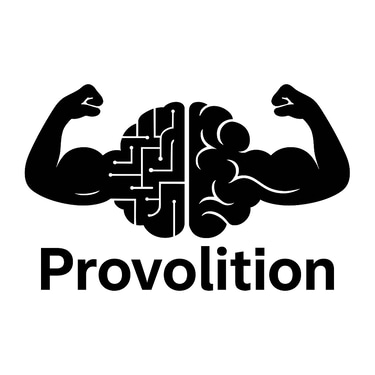Mind Over Machine: Using AI to Strengthen, Not Steal, Your Willpower
9/20/20252 min read
At a time when technology seems to have a solution for everything, we find ourselves scrambling for more, to fill the void of inadequacy, from what we eat to our exercise routine, and even how we relax and unwind - ironic, right?
Artificial Intelligence (AI) now promises to track our sleep, manage our finances, and guides us toward better habits. At first, it feels like having a superpower, like carrying your own personal assistant in your pocket. And honestly, who wouldn’t want that kind of power at their fingertips?
Things go wrong when we let AI make too many choices for us, and we end up giving away the very thing we want to build: willpower. If we aren’t careful, those helpful nudges can turn into a crutch, making it harder for us to make our own decisions.
So how do we reduce the likelihood of dependence on AI? How can AI serve as a resource for growth without quietly depleting our independence?
The Science of Willpower
To understand the risk, we need to visualize willpower as a limited resource, like a mental fuel that depletes with use. Skip breakfast, face a long day of decisions, and suddenly resisting that late-night dessert feels impossible. No matter what, willpower isn’t set in stone. We can train it, shape it, and help it grow.
This is where AI comes in. When used well, it can make things easier, help us notice what we miss, and support good habits. But if we rely on it too much, we might become dependent and lose some of our own strength over time.
How AI Can Help, or Hurt
AI excels at pattern recognition. It can notice when you tend to skip workouts, overspend, or doomscroll late at night. From there, it suggests nudges: reminders, alerts, streak trackers.
While these nudges are convenient, they are also external, leaving that internal compass that used to guide your decision-making, priorities, and motivation dormant while you obey the machine. While this may lead to the misconception that your just reducing the workload of your mind, there may be unanticipated consequences.
As the parts of your brain necessary for problem solving and decision making remain idle, automated recommendations, if unexamined, may replace genuine decision-making with default compliance.
Here lies the importance of framing your use of AI to correctly assist your decision-making and problem-solving instead of delegating the entire responsibility.
Framed correctly, AI can provide clarity by surfacing hidden behaviors you weren’t aware of, offering data to inform, not dictate, your choices, and act as training wheels until new habits become self-sustaining.
So the real difference isn’t the technology itself, but how thoughtfully we choose to use it.
Principles for AI-Assisted Growth
Steps to maintain willpower can be easily adapted to the use of AI and involve using suggestions as just that, suggestions, not commands. More importantly, ensure that you balance AI advice with human feedback, which adds advice, empathy, and accountability that cannot be replicated by AI.
Autonomy Above All
AI is a powerful tool. It can show us where we struggle and where we do well. But, just like any tool, it only helps if the drive comes from inside us.
Willpower isn’t something to hand over to technology. It’s a muscle we need to train ourselves. Technology should be there to support us, not to do the work for us.
So the next time an app nudges you, ask yourself: Am I building my strength, or leaning on its crutch? That single question could be the most empowering habit of all.
